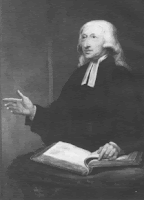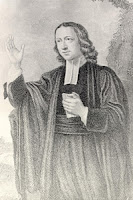
JULY 25
I went to a gentleman who is much troubled with what they call lowness of spirits. Many such have I been with before; but in several of them it was no bodily distemper. They wanted something, they knew not what; and were therefore heavy, uneasy, and dissatisfied with everything. The plain truth is, they wanted God, they wanted Christ, they wanted faith; and God convinced them of their want, in a way their physicians no more understood than themselves. Accordingly nothing availed till the great Physician came. For in spite of all natural means, He who made them for Himself would not suffer them to rest till they rested in Him.
Journal, 13th July, 1739
With what is past, or what is to come, we have little to do. Now is the day of Salvation.
Letter, 21st April, 1787

















